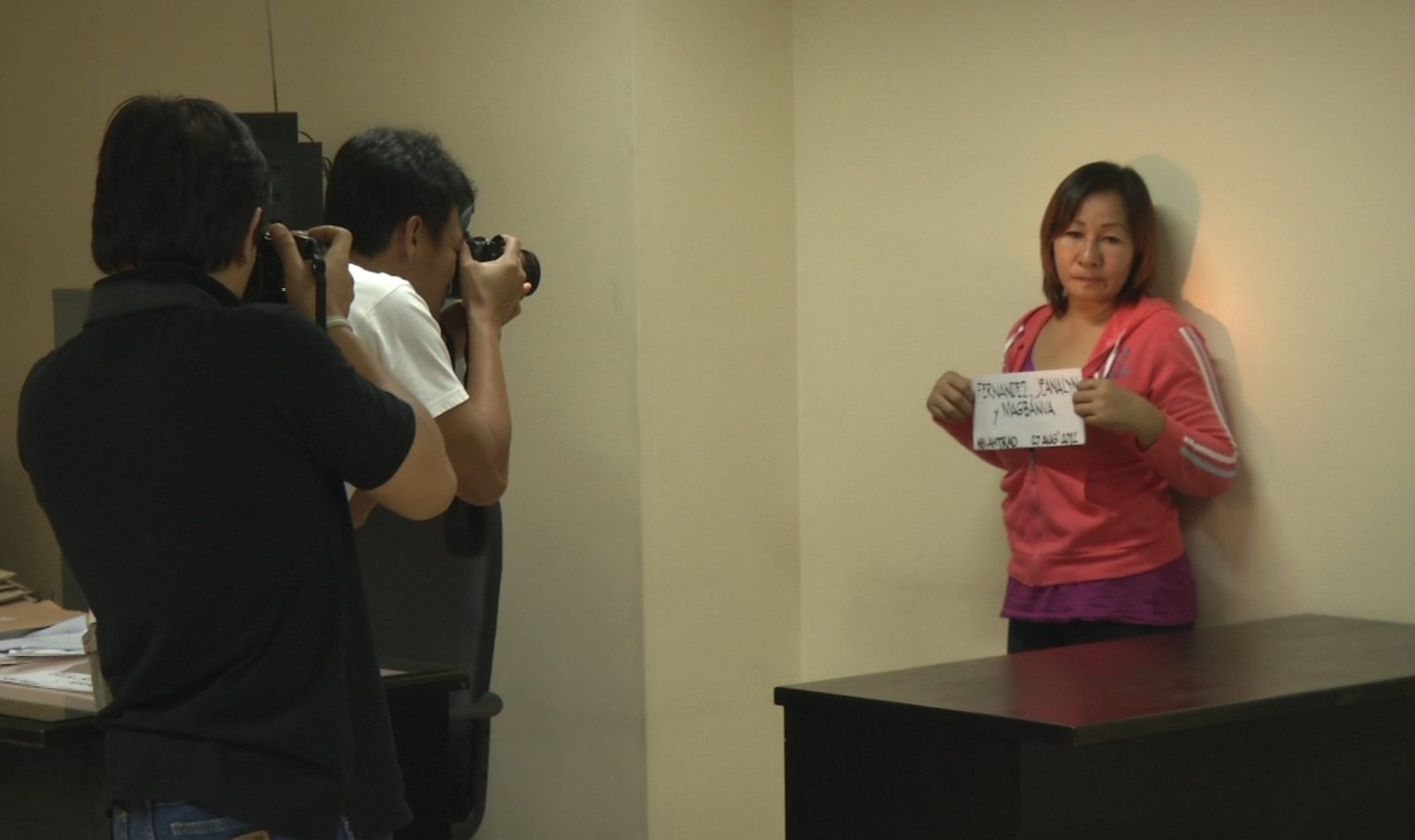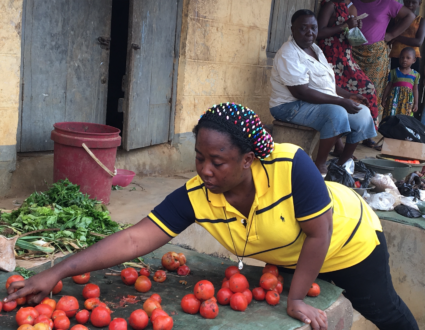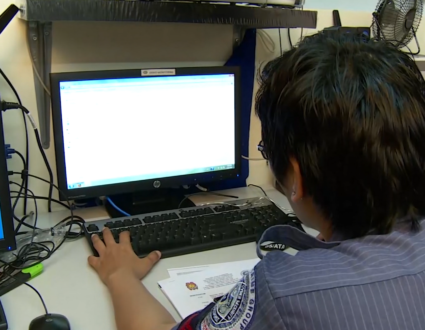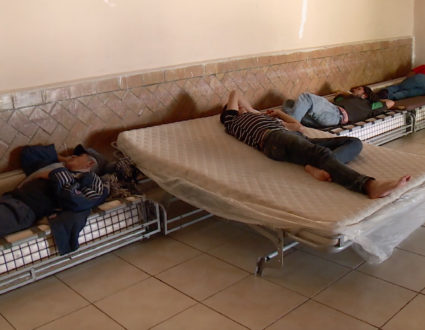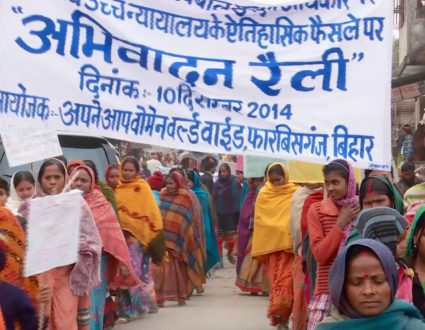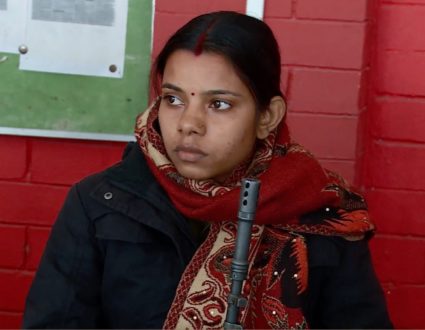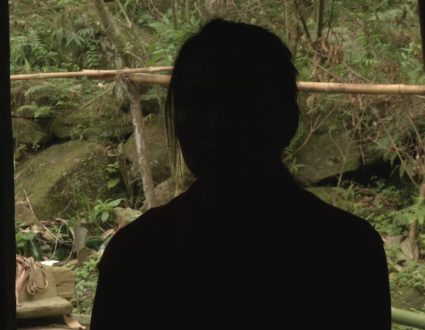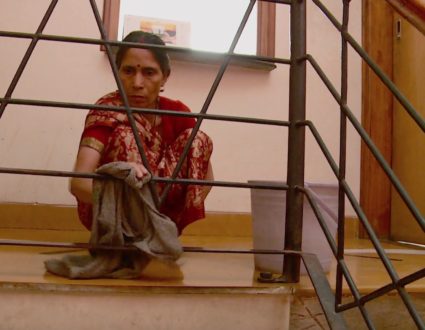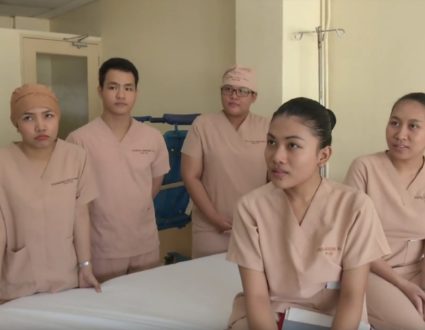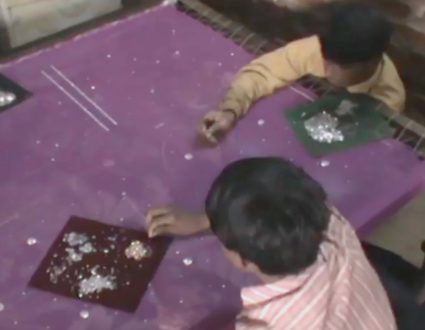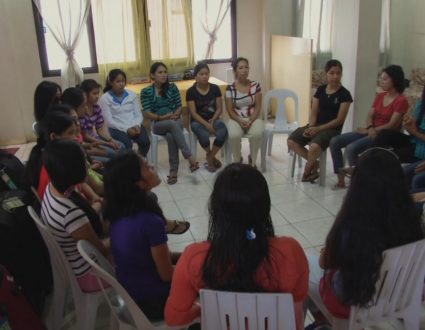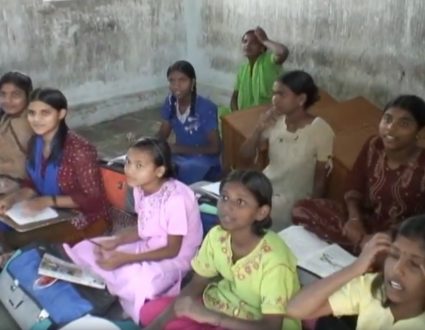GWEN IFILL: Next, we begin a series we’re calling Agents for Change, a look at people around the world working to improve the lives of others.
In our first story, special correspondent Fred de Sam Lazaro travels to the Philippines. That’s where one group is trying to rescue girls who, lacking jobs and income, become prime targets for human trafficking.
FRED DE SAM LAZARO: About 11 million Filipinos — that’s more than 10 percent of this country’s entire population — works overseas, everything from doctors and nurses, many in the United States, to substantial numbers of female domestic workers who go to other parts of Asia, and especially to the Persian Gulf and Arab countries.
They go because jobs are in short supply, and those that are available pay very little. A house maid in Hong Kong or Dubai earns more than a college graduate here — 15 percent of this country’s gross domestic product comes from money sent home by overseas Filipinos. But there is a dark downside that makes these migrants vulnerable.
CECILIA FLORES-OEBANDA, Visayan Forum Foundation: The Philippines, as a migrant country, becomes really very vulnerable to the human trafficking.
FRED DE SAM LAZARO: Cecilia Oebanda, who founded Visayan Forum foundation, the country’s largest anti-trafficking group, says it often begins in areas like this Manila slum.
FRED DE SAM LAZARO: Up front.
CECILIA FLORES-OEBANDA: Up front.
FRED DE SAM LAZARO: Oebanda grew up in poverty and worked as a child. Later, she joined the resistance to the dictator Ferdinand Marcos and was imprisoned. For several years now, her group has rescued and provided refuge to trafficking victims of all ages and circumstances, from prostitution to other forms of forced labor.
CECILIA FLORES-OEBANDA: Some of them were arrested from brothels. A lot of these girls are actually under threat…
FRED DE SAM LAZARO: Under threat?
CECILIA FLORES-OEBANDA: Yes, under threat from the traffickers. A lot of them were — families are harassed.
FRED DE SAM LAZARO: This is one of Visayan Forum’s seven facilities across the Philippines, supported by various international government and foundation donors.
The young women, some as young as 8, are given extensive psychotherapy, reunited with family when possible, or given job training. Paradoxically, many Filipinos use their job training as a ticket out of the country, the only way many see to a better life.
JAIBA AMIN, Philippines (through translator): My family doesn’t have anything here in the Philippines. My mother doesn’t have a job. My father doesn’t have one. We are six siblings in the family.
JENELYN ANOG, Philippines (through translator): I want to send my siblings to school, and I wanted to help my mother, because she is the only one taking care of us now, because my father is dead.
FRED DE SAM LAZARO: These women just returned from Syria, their work cut short not just by the political situation there, but also by abuse.
JAIBA AMIN (through translator): I was physically abused, and they didn’t pay me. I wasn’t paid for one year and six months.
JENELYN ANOG (through translator): I was there for two years and one month, but then the situation in Syria became worse, and I was also afraid for my own safety, given the situation. They were not paying me, so I decided to escape.
FRED DE SAM LAZARO: Agnes Jamarin nearly died fleeing employers who were angered because the child she was caring for was bruised in a playground accident, she says.
AGNES JAMARIN, Philippines (through translator): There was a fire escape, so I used it to escape from my employer’s house. And I went down to the third floor, and accidentally fell from there to the ground floor.
FRED DE SAM LAZARO: She has a broken jaw.
Stories of abuse and unpaid wages are so widespread that the Philippine government has even considered barring its citizens from working as domestics in some countries. To prevent more women from falling prey, Visayan Forum works with the National Bureau of Investigation to conduct undercover stings that have been encouraged by the government of President Benigno Aquino, which has pledged to crack down on these illicit recruiters.
On this sting, the alleged trafficker was to be given the equivalent of $1,500 in up-front fees, all in marked bills. Pictures were enclosed of young women applying supposedly for waitressing jobs in the touristy PacificIsland nation of Palau.
MAN: We learned that some of those who eventually went there, instead of being waitresses, were turned into — they were forced to sit with costumers, have a drink with them, then sometimes forced to go out with them for sexual…
FRED DE SAM LAZARO: They were prosecuted, in other words.
MAN: In other words, they were prostituted.
FRED DE SAM LAZARO: Are you excited? Are you nervous?
WOMAN: It’s fine, because it is my first time to do this.
FRED DE SAM LAZARO: Michelle Ramos (ph), a Visayan Forum social worker, was one of the three women posing as job applicants. The two others were detectives.
MAN: So we are expecting minimal resistance in the target area.
FRED DE SAM LAZARO: So, Cecilia, the police have asked you to just wait here?
CECILIA FLORES-OEBANDA: Yes.
FRED DE SAM LAZARO: They’re doing what now?
CECILIA FLORES-OEBANDA: We’re doing actually the checking right now.
FRED DE SAM LAZARO: They’re casing the area to make sure…
CECILIA FLORES-OEBANDA: They’re touring the areas to check if it is secure or not.
FRED DE SAM LAZARO: Thirty minutes later, there was word from the undercover decoys.
CECILIA FLORES-OEBANDA: As of now, I just received a text message that they are filing of — you know, the forms.
FRED DE SAM LAZARO: They’re signing the forms?
CECILIA FLORES-OEBANDA: Yes, the forms are ready, and the next stage is just pay the money. And that is our cue.
FRED DE SAM LAZARO: Another text followed. The suspect had accepted payment, actual proof that a crime had been committed.
Oebanda and counselors followed on the heels of the law enforcement officers. Detectives collected evidence and questioned the alleged trafficker.
Oebanda sat with a handful of stunned young women who had been held here, expecting to soon leave for Palau.
CECILIA FLORES-OEBANDA: Yes. So, they are arranging their things and they’re going with us.
FRED DE SAM LAZARO: The job of Visayan counselors now is to tell victims that help is available and that they in fact have been victimized.
At headquarters, the alleged trafficker and a partner were booked. It quickly became clear from dossiers of dozens, perhaps hundreds of job applicants that this was a big catch.
MAN: Jordan. Palau. Palau again. Palau.
FRED DE SAM LAZARO: Trafficking is a non-bailable offense that carries a life sentence. Whether it is a deterrent, though, is an open question in a justice system that experts say is plagued by corruption.
Geronimo Sy is a prosecutor in the Department of Justice.
GERONIMO SY, Prosecutor: Who polices the policeman? Who prosecutes the prosecutor? Who judges the judge? Who polices a corrupt media when everybody is in cahoots, especially if these are well-entrenched interests? So that is a major challenge.
FRED DE SAM LAZARO: President Aquino has launched an anti-corruption drive, firing or arresting some high-level officials, and he has instructed Justice Department officials like Sy to upgrade arcane laws to be more effective against organized crime.
Since we returned from the Philippines, though, Oebanda has come under suspension. The U.S. Agency for International Development, a major donor, filed a complaint against Visayan Forum, alleging improprieties in a financial audit.
Oebanda complained she has not seen the audit, but vigorously any wrongdoing. And as the case proceeds to court, she has vowed to continue the work of her agency, which serves thousands of trafficking victims.
FRED DE SAM LAZARO: Ironically, some of them, like Jenelyn Anog, just back from Syria, see no other option than to take their chances.
JENELYN ANOG (through translator): I just want to start a new life. I will not give up. I still want to go abroad because I really want to help my mother and help my siblings to finish their education.
FRED DE SAM LAZARO: And for the foreseeable future, both her family and her government will continue to depend on the money she and millions of overseas Filipinos send home.
GWEN IFILL: As you can see, we blurred some of the faces in that story to protect the identities of some of the people involved.
Fred’s reporting is a partnership with the Under-Told Stories Project at Saint Mary’s University in Minnesota.
Have questions about human trafficking abroad and here at home? Fred and a lawyer who works to defend victims will take your questions online.
We’re also launching a new series featuring young entrepreneurs creating jobs and improving lives in their communities. See a list of 10 Agents for Change and add your suggestions for our next profiles. That’s all on our website.
Visayan Forum
The Philippines have become increasingly vulnerable to human traffickers, who lure women of all ages and circumstances into prostitution and other forms of forced labor. Fred de Sam Lazaro reports on how Cecilia Oebanda’s Visayan Forum Foundation has worked with law enforcement to prevent more women from falling prey.
Related Links
US State Dept: Trafficking in Persons Report 2012
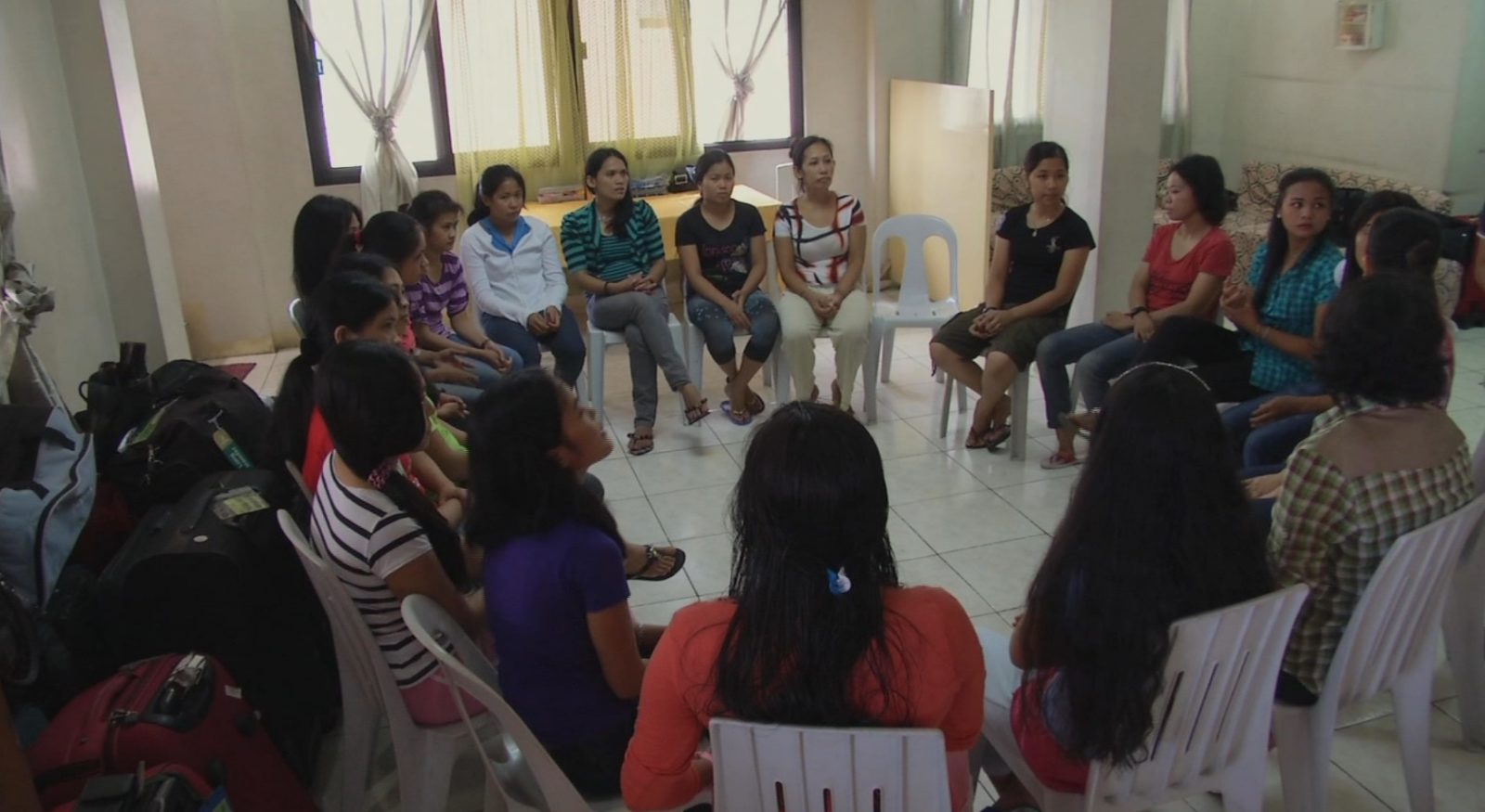
Visayan Forum
is the country’s largest anti-trafficking group and works closely with police. Once rescued, victims are given extensive psychotherapy, reunited with family when possible or given job training.

Geronimo Sy
“Who polices the policeman? Who prosecutes the prosecutor? Who judges the judge? Who polices a corrupt media when everybody is in cahoots, especially if these are well-entrenched interests? So that is a major challenge.”
